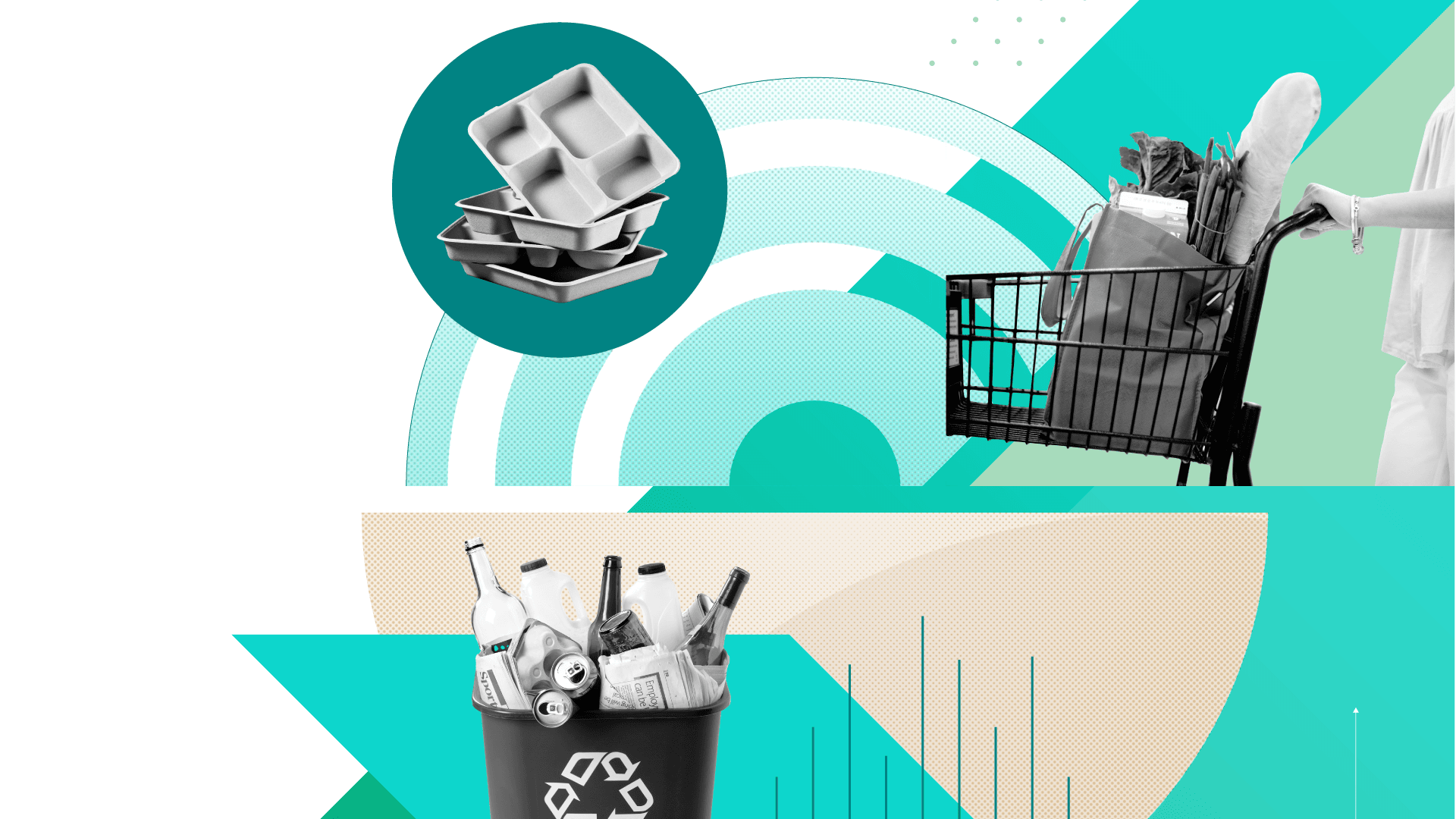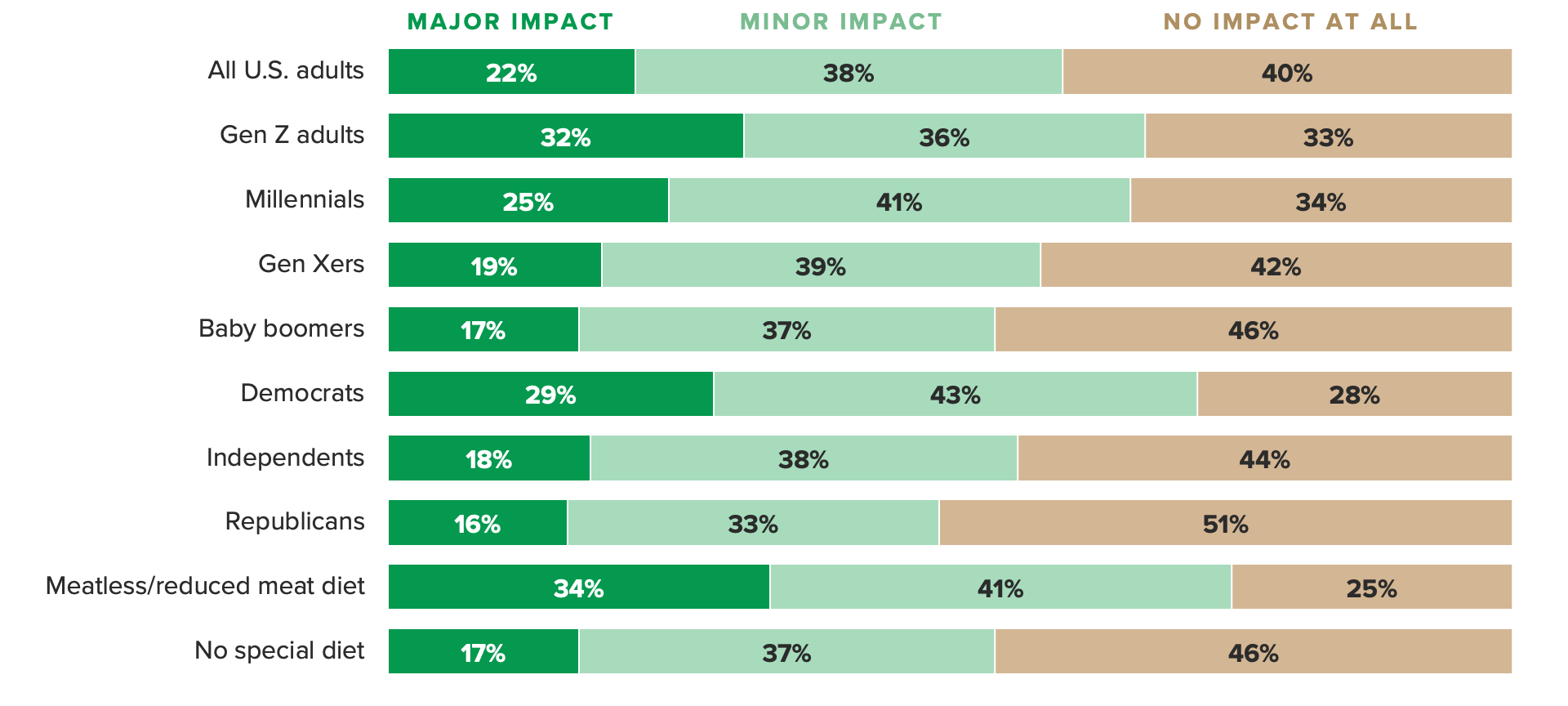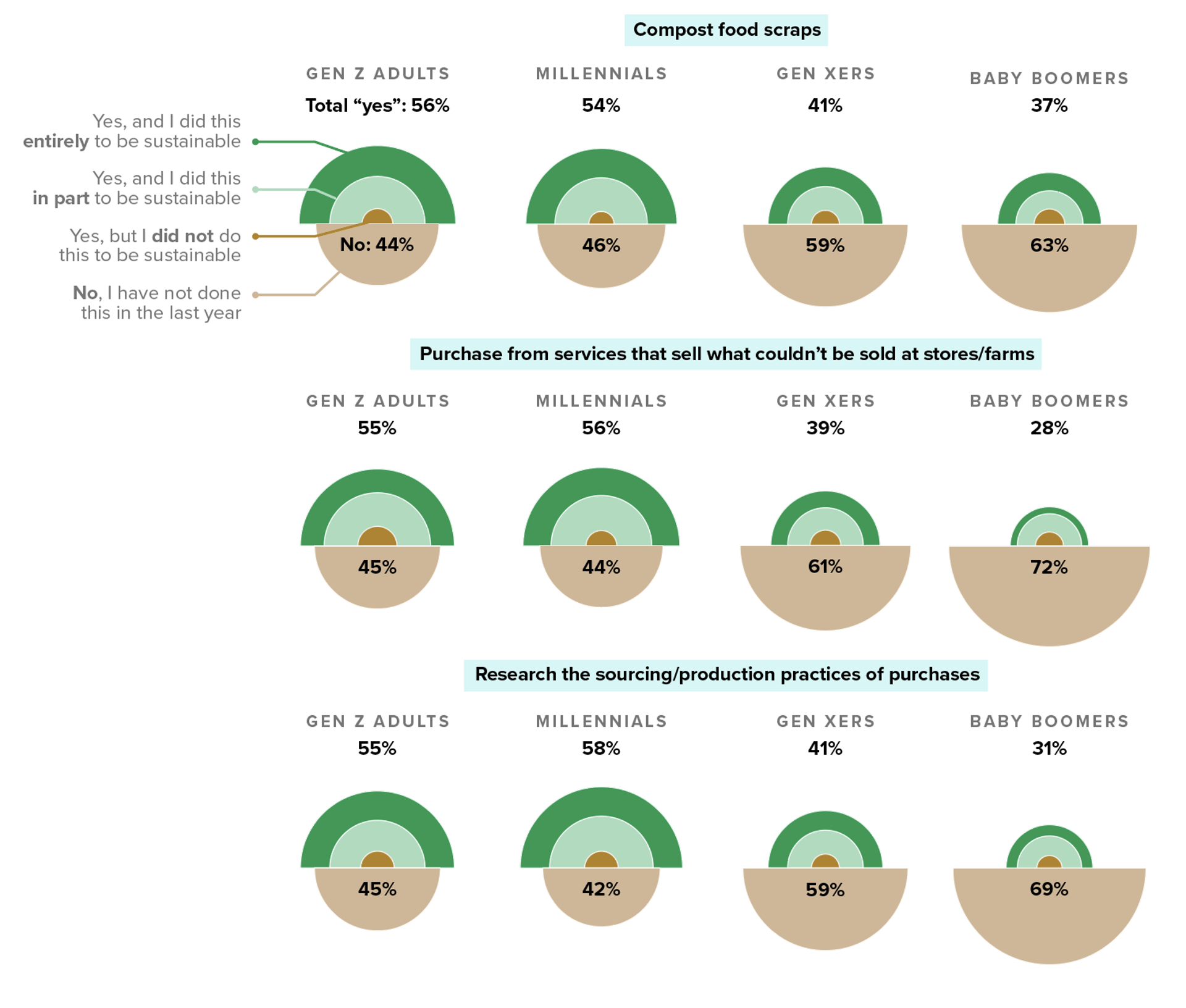Gen Zers and Millennials Are Hungry for Sustainability Efforts from Food & Beverage Companies

This is part of Morning Consult’s What Sustainability Means to Consumers research, which gathers the views of roughly 2,200 U.S. adults on what sustainable actions consumers expect from the brands they purchase from.
It’s essential for food & beverage companies to connect with Gen Zers and millennials on sustainability efforts. These consumers are more likely than their older counterparts to engage in sustainability-focused behaviors and to proactively research brands’ sustainability initiatives.
Download the What Sustainability Means to Consumers: Food & Beverage report here.
The public has high expectations for food & beverage brands when it comes to sustainability.
The industry came in second only to automotive when consumers were asked to select the sector in which sustainability is most important. That ranking provides a lot of opportunity — and a lot of responsibility.
In an industry made up of frequently purchased, quickly consumed goods, sustainability-related issues are highly visible in terms of packaging and waste. But more than 1 in 4 U.S. adults said they don’t know what makes a food or beverage product sustainable. This lack of understanding may partly explain why only 19% of consumers have “a lot” of trust in the industry to do what’s right for the environment.
Companies have an opportunity to address these gaps with action and education. To help industry leaders navigate these important decisions, we measured consumers’ current knowledge, concerns and behaviors around sustainability to help inform how future sustainability efforts can best meet their expectations.
Younger generations and Democrats are more likely to say climate change has an impact on their eating and drinking behaviors
People weigh dozens of factors in every food and drink decision they make, including taste, cost, health and wellness, satiety, and convenience, just to name a few. The impact of diet on climate change is one consideration among many. Still, roughly 1 in 5 consumers say it has a major impact on their everyday food and beverage behaviors.
For some consumer groups, climate change rises higher on their list of considerations. Gen Zers are nearly twice as likely as baby boomers to say it has a major impact. A similar pattern is true of Democrats and those committed to a meatless or reduced meat diet; for the latter, it may be a contributing factor to their decision to follow said diet.
Reaching these consumers is key for food & beverage companies, as these demographics are most likely to engage in sustainability-focused behaviors and with brands’ sustainability initiatives.

Many Gen Zers and millennials are already making sustainable choices as part of their everyday lives
As the generations most likely to indicate that climate change impacts their everyday eating and drinking behaviors, Gen Z adults and millennials are also much more likely to say they are engaging in a variety of core sustainability actions: composting, researching sourcing and production practices, and purchasing imperfect produce. And they’re taking these actions specifically to be more sustainable. Not only did a majority of Gen Z adults and millennials say they composted in the last year, for instance, but most (46% and 45%, respectively) said they did so at least in part to be sustainable.
Brands should especially take note of the researching behavior, as these generations are actively looking for companies that will take action. These consumers’ emphasis on sustainability is likely due in part to their coming of age alongside the tangible impacts of climate change, from increased droughts and floods to wildfires and hurricanes.

Food & beverage brands can build trust by taking sustainable action and educating consumers
Consumers are understandably concerned about the environmental impact of this large industry. The good news is that they are willing to share the responsibility for sustainability efforts — and maybe even the costs — with food & beverage companies. In fact, 45% of U.S. adults said that brands and consumers are equally responsible for the sustainability of the food & beverage industry.
A large majority of consumers are also already regularly working to reduce their own food waste, recycle and reuse grocery bags. Gen Z adults and millennials have gone even further with their sustainability efforts. These younger consumers are adopting sustainable habits that will last their lifetimes.
Companies in this industry have work to do to meet consumers on this journey. Many companies are engaging in innovative solutions, but there’s opportunity to inform consumers about exactly what actions they’re taking and how those initiatives can help. This education, backed with concrete action, will help to build trust in the food & beverage industry.
Emily Moquin previously worked at Morning Consult as a lead food & beverage analyst.